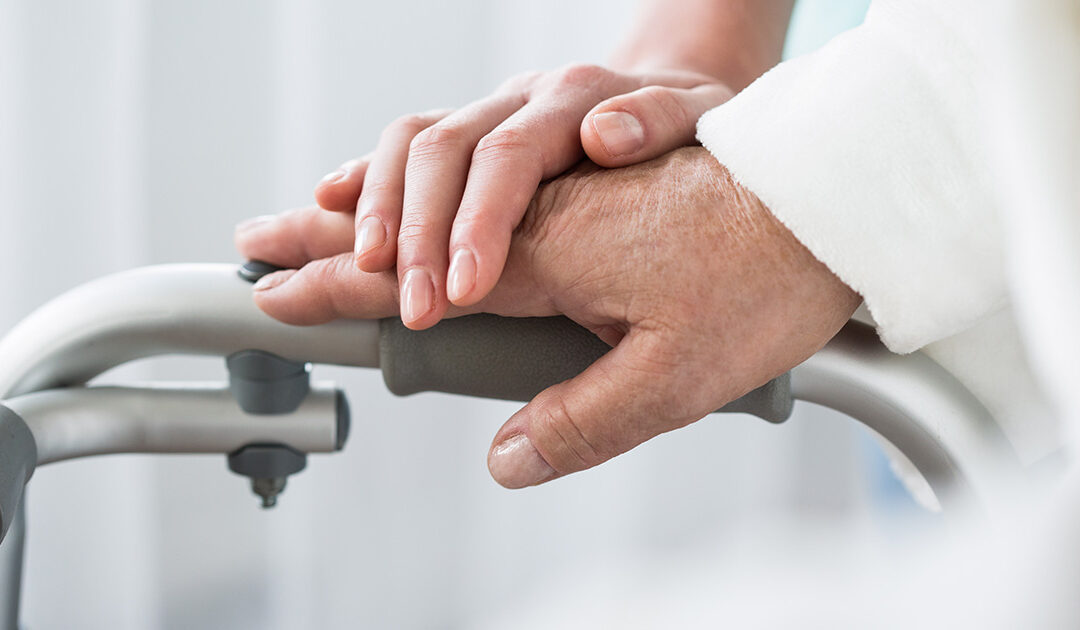Harrisburg - 2 de junio de 2021 - A petición de los senadores Wayne Fontana (D- Allegheny), el líder demócrata del Senado Jay Costa (D- Allegheny), Jim Brewster (D- Allegheny/Westmoreland), y Lindsey Williams (D- Allegheny), el Comité de Política Demócrata del Senado de Pensilvania celebró una audiencia pública virtual sobre cómo Pensilvania puede mejorar la atención en hogares de ancianos.
"La pandemia de COVID-19 fue una llamada de atención para todos nosotros de que ciertos aspectos de nuestra sociedad no están equipados para responder rápida y eficientemente a las crisis, y que muchos sectores de nuestra sociedad que ya estaban luchando sufrieron las mayores pérdidas debido a la pandemia", dijo el senador Costa. "Nuestras residencias de ancianos atienden a algunos de los miembros más vulnerables de nuestra sociedad, y es imperativo que estos centros asistenciales no sólo estén equipados para responder a crisis como las pandemias, sino que incluso en los mejores momentos cuenten con el personal y la supervisión adecuados."
En su testimonio de hoy, Teresa Osborne, Gerente de Promoción y Divulgación de AARP PA, dijo que con casi 13.300 muertes de Pennsylvanians que residen en centros de atención a largo plazo, y con Pennsylvanians 50 y más representan el 98% de todas las muertes relacionadas con COVID-19, la necesidad de actuar sobre este tema es clara.
"Durante la pandemia, las residencias de ancianos lucharon por mantener la salud y la seguridad de sus residentes, la salud y la dotación de personal de sus empleados, y la familia y los seres queridos quedaron casi completamente al margen de la vida de los residentes en centros de cuidados colectivos. Debemos asegurarnos de que las residencias de ancianos en el futuro estén preparadas para otra crisis sanitaria, y de que estas instalaciones funcionen de forma eficiente y con los más altos estándares en todo momento", declaró el senador Fontana.
La senadora Lindsey Williams continuó: "Nuestros residentes en residencias de ancianos, sus familias y sus seres queridos han sido algunos de los más afectados por el COVID-19, pero estos problemas no empiezan ni terminan con la pandemia actual. Tenemos que hacer más para proteger la salud, la seguridad y el bienestar emocional de nuestros mayores, y escuchar directamente de las personas que están haciendo este trabajo todos los días es una parte clave de la creación de la política legislativa que proporcionará los apoyos necesarios para lograr esos objetivos."
Keshia Williams, una trabajadora de enfermería CNA y miembro de SEIU Healthcare, dijo hoy en su testimonio que los residentes que cuida en hogares de ancianos casi a diario se convierten en familia, y a veces los residentes no tienen otra familia para apoyarlos - sólo ella y sus compañeros CNA y enfermeras. Dijo que eso hace que sea aún más difícil lidiar con el hecho de que el estado sólo requiere 2,7 horas de atención a los residentes en un período de 24 horas.
"Durante décadas, dimos la voz de alarma sobre la falta crónica y peligrosa de personal y las condiciones inaceptables para trabajadores y residentes. Nos las arreglamos con unos recursos cada vez más escasos y exigimos una reforma que salvara vidas, mientras el sector se centraba cada vez más en el balance final y las ventas desenfrenadas y sin control de residencias de ancianos a propietarios irresponsables hacían bajar los estándares", afirmó Keshia Williams.
Dennis Biondo, Director Ejecutivo del Condado de Allegheny de los Centros de Vida Comunitaria Kane, dijo en su testimonio que la supervisión de las residencias de ancianos y centros de atención comunitaria se realiza a través de encuestas del Departamento de Salud de Pensilvania. Dijo que esto "no va a mejorar la atención en residencias de ancianos", porque en lugar de crear un cambio significativo son sólo una manera de marcar casillas.
"El Departamento de Salud de Pensilvania se encarga de la concesión de licencias y la regulación de las residencias de ancianos. La Oficina de Garantía de Calidad del Departamento supervisa este importante control normativo de supervisión del cumplimiento a través de encuestas, comúnmente conocidas por el público como inspecciones de las instalaciones, para garantizar que las instalaciones proporcionan una atención adecuada a los residentes en cumplimiento de todas las leyes y reglamentos aplicables. Esto se aplica a las leyes y reglamentos federales, ya que, además del papel del departamento como entidad estatal de inspección, también está contratado por los Centros de Servicios de Medicare y Medicaid (CMS) para actuar como entidad federal de inspección de residencias de ancianos", explicó Keara Klinepeter, Vicesecretaria Ejecutiva del Departamento de Salud de Pensilvania.
Klinepeter dijo que mientras que la regulación de la encuesta fue requerida a nivel federal en Pennsylvania, y en todos los estados a través de los EE.UU., el Departamento de Salud de PA vio durante la pandemia de COVID-19 los beneficios de las asociaciones entre hospitales y sistemas médicos a los hogares de ancianos de PA a través del Programa de Respuesta Regional financiado por el dinero de la Ley CARES. Klinepeter afirmó que ya se están realizando esfuerzos para continuar con este programa a través de subvenciones federales. Esto permitirá que los hogares de ancianos de Pensilvania continúen capacitando al personal en prácticas de salud pública adecuadas relacionadas con la respuesta ante una pandemia y más allá.
En respuesta a las preguntas sobre las quejas de las residencias de ancianos y las encuestas que se derivan de ellas, Klinepeter dijo que el Departamento de Salud registró un aumento del 23% en las encuestas en 2020. Estas encuestas también incluyen encuestas para inspeccionar el uso de medidas de control de infecciones en las instalaciones.
Georgia Goodman, Directora de Asuntos Gubernamentales de Leading Age PA, reiteró la importancia de mantener la moral de los empleados y de proporcionar personal adecuado y bien remunerado para atender a los residentes.
"Las residencias de ancianos no pueden subir los precios sin más. Dos de cada tres residentes en hogares de ancianos son pagados por el Programa de Asistencia Médica - el pagador del gobierno que está subfinanciando la atención por un promedio de $ 80 por residente por día para nuestros miembros. Estamos instando a que se apoye la asignación directa de 396 millones de dólares a las residencias de ancianos utilizando la misma metodología que la asamblea general promulgó en la Ley 24 de 2020 para ayudar a los proveedores con una serie de desafíos financieros provocados por la pandemia, pero ninguno más agudo que la dotación de personal", dijo Goodman.
Goodman también dijo que su organización estaba agradecida de colaborar en el Proyecto de ley del Senado 1268que ofrecía a los auxiliares de enfermería contratados temporalmente durante la pandemia una vía hacia la inscripción permanente en el registro de auxiliares de enfermería, y que apoyan una serie de iniciativas actuales como el Proyecto de ley 115 del Senado para permitir que Pensilvania participe en la reciprocidad de licencias para que las enfermeras de otros estados puedan ayudar con la escasez de personal sanitario de nuestro estado.
"Es despreciable que el cuidado de nuestra población de ancianos en Pensilvania parezca ser una idea de último momento para los encargados de la supervisión y las directrices para la atención en hogares de ancianos y centros de atención comunitaria. Las quejas de las residencias de ancianos, las normas de supervisión y la necesidad de contar con una plantilla segura para proporcionar una atención adecuada ya eran un problema antes de esta pandemia. Ahora que hemos visto morir a más de 10.000 residentes de residencias de ancianos a causa del COVID-19, está claro que Pensilvania necesita una acción inmediata y contundente para proteger a nuestros mayores y a los que viven en centros de cuidados comunitarios", declaró la senadora Kate Muth (D- Berks/Chester/Montgomery), presidenta del Comité de Política Demócrata del Senado.
A continuación figuran todos los participantes en la audiencia de hoy:
- Dennis Biondo, Condado de Allegheny, Director Ejecutivo Kane Community Living Centers
- Keara Klinepeter, Departamento de Sanidad de Pensilvania, Vicesecretaria Ejecutiva
- Dean Owrey, Director Financiero, Vincentian Collaborative System
- Georgia Goodman, Leading Age PA, Directora de Asuntos Gubernamentales
- Keshia Williams, auxiliar de enfermería, trabajadora de una residencia de ancianos, SEIU Healthcare
- Debbie Winn-Horvitz, Presidenta y Directora General, Jewish Association on Aging
- Jennifer Costello, Departamento de Envejecimiento del Condado de Chester, Defensora del Pueblo para Cuidados a Largo Plazo
- Teresa Osborne, Directora de Promoción y Difusión, AARP PA
Entre los senadores que también asistieron a esta audiencia se encuentran el senador Sharif Street (demócrata por Filadelfia) y la senadora Maria Collett (demócrata por Bucks/Montgomery).
La grabación completa de esta mesa redonda, así como los testimonios escritos de los participantes, pueden consultarse en senatormuth.com/policy. Una grabación completa de esta audiencia también se puede encontrar en el página de Facebook de los demócratas del Senado de Pensilvania.
###

